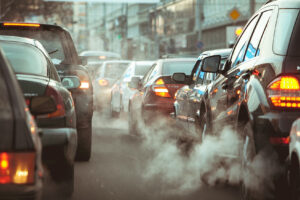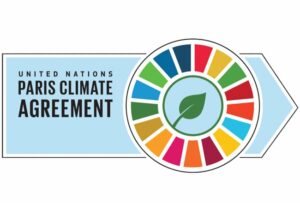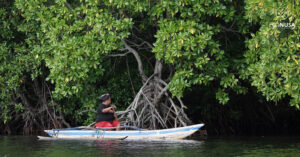When talking about the types of waste that contaminate the environment the most, plastic waste such as plastic bags and plastic straws are frequently highlighted. However, other than these two, it turns out that there is another little object with a large number that also has many negative impacts for the environment. Can you guess what it is?
Yup, the answer is cigarette butts! Every year, it is estimated that around 4.5 trillion cigarette butts end up as waste and pollute the environment. Furthermore, a study conducted by Jenna Jambeck from the University of Georgia stated that Indonesia is the second largest contributor to marine debris after China. Of the 187.2 million tons of waste that ends up in the ocean, 52 million of which are cigarette butts. That’s a lot right?
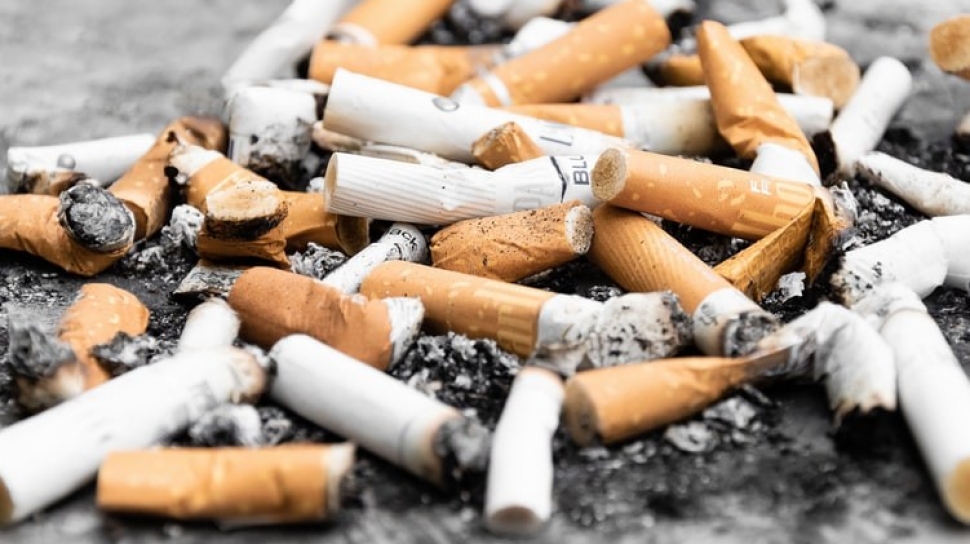
Not only a lot in quantity, cigarette butts also bring many problems to the environment, such as:
1. It is frequently the cause of a fire
You may have heard of fires caused by cigarette butts in the news. These cigarette butts are usually thrown away because they have not been properly turned off. For instance, in 2019, a forest fire in Sukabumi burnt around 8 hectares of forest and land. When a forest fire like this occurs, it causes plenty of other issues. The presence of animals in the forest, for example, is threatened, and the smoke from the fire pollutes the air.
2. Cigarette butts are difficult to decompose
Cigarette butts are made up of cellulose acetate fibers, a type of microplastic that takes a long time to decompose. It takes at least ten years for them to decay entirely. When they haven’t fully degraded, the toxic compounds in cigarettes can spread across and harm the ecosystem. For example, polluting soil and waterways, along with the organisms that reside there.
3. It can poison fish and other marine species
A large number of cigarette butts end up on beaches and oceans every day. According to the data from The Ocean Conservancy, the most common sort of debris found each year during International Coastal Cleanup (ICC) programs held across the world is cigarette butts.
Chemicals in cigarette butts, such as lead and cadmium, can damage marine ecosystems when they enter the water. Furthermore, it has been discovered that many marine biota mistakenly think that the cigarette butts they encounter are food and therefore swallow them. This, of course, can have catastrophic consequences for their bodies, even resulting in death.
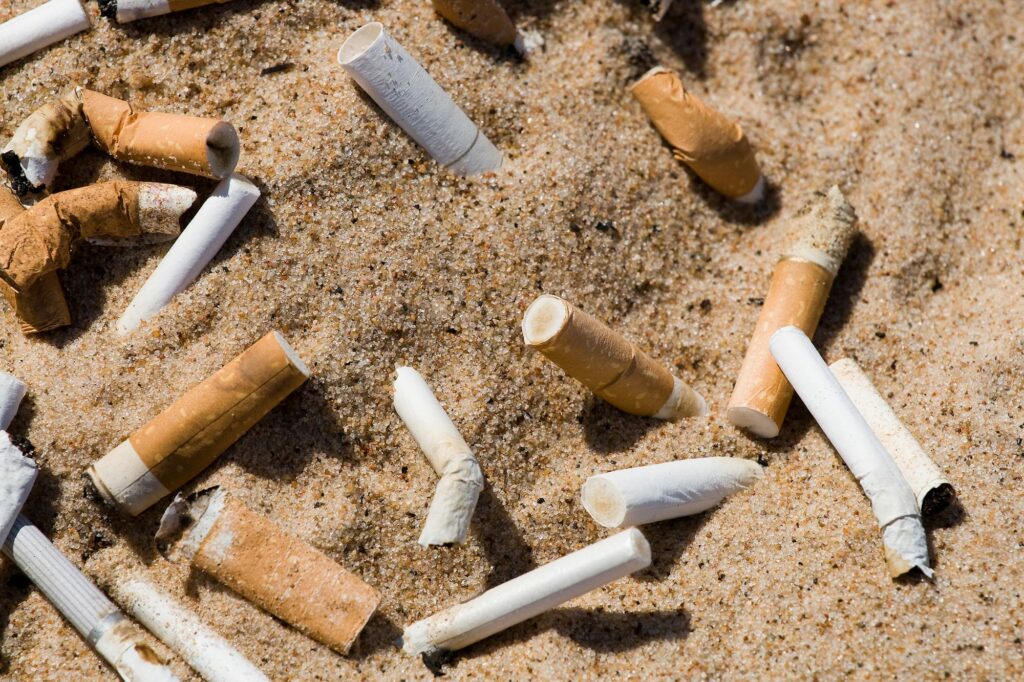
Isn’t that really dangerous? As a result, attempts to reduce and manage cigarette butt waste must be taken more seriously, just like currently there are regulations in a number of places that prohibit the use of plastic bags and straws.
Quitting smoking is, of course, the best way to reduce cigarette butts. However, for those of you who continue to smoke, at least you must have a sense of responsibility so that the trash is not discarded carelessly, especially when it is not totally dead. Another effort that can be made is to collect your cigarette butts and submit them to a recycling center, so they can be recycled into something else.
Also, don’t forget to tell your friends and family about the risks of cigarette butts to the environment! You can do this in person or through social media, for example. If you’re still unsure about where to begin your action, consider participating in the School of Eco Diplomacy program! This program will provide you with a number of tips and training so that your environmental action can be more effective.





